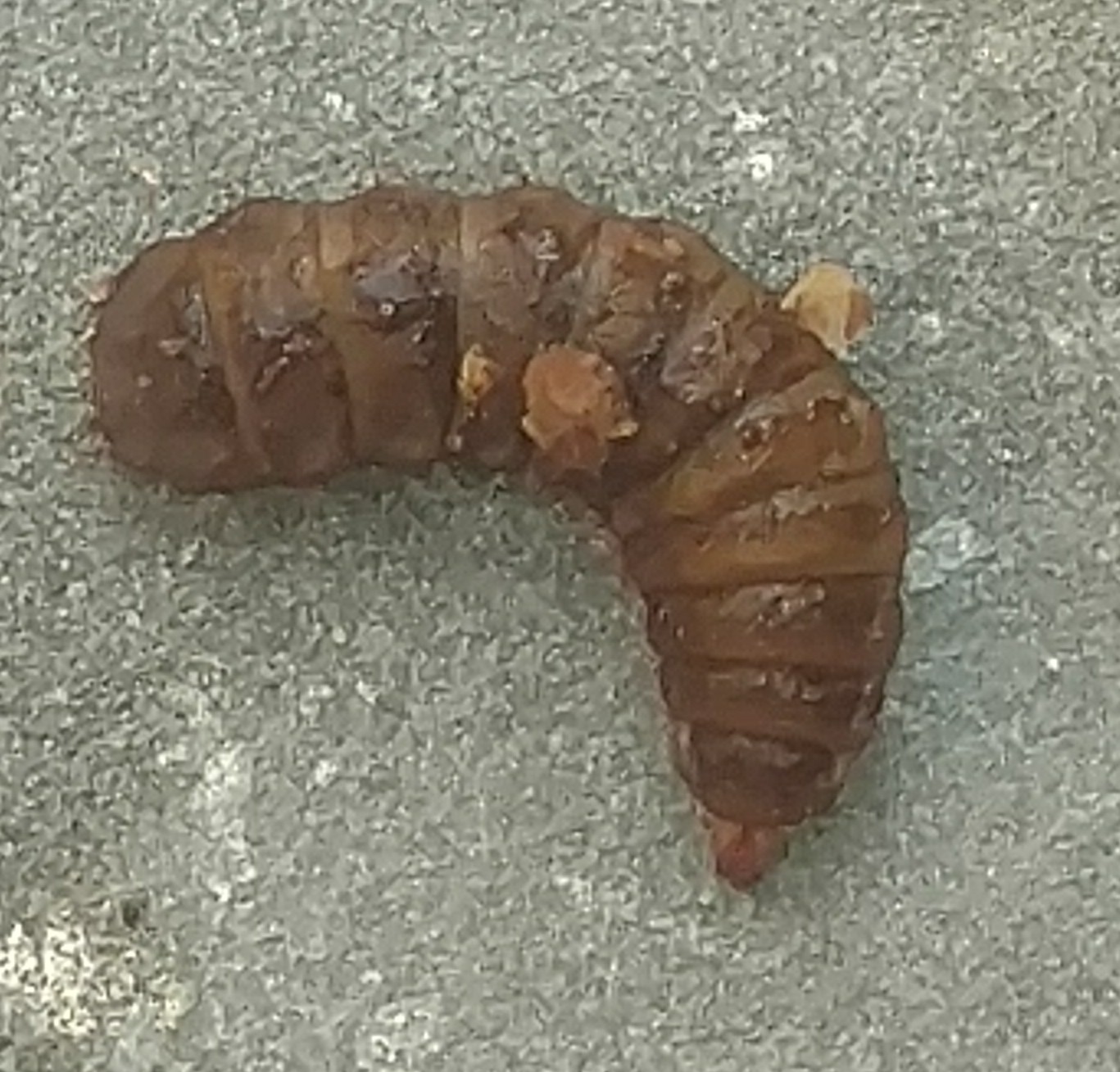I have a small decomposition box made out of improvised plastic machine oil tubs. I have been adding kitchen wastes to it for the past couple weeks along with dry leaves.
Recently I added okara to it and while turning the compost, I noticed grubs growing specifically in the okara. There are grubs in multiple sizes, so I am not sure if this is the only species either.

- What is this grub?
- Is this grub harmful for my compost bin?
- In general, are grubs helpful in composting?
